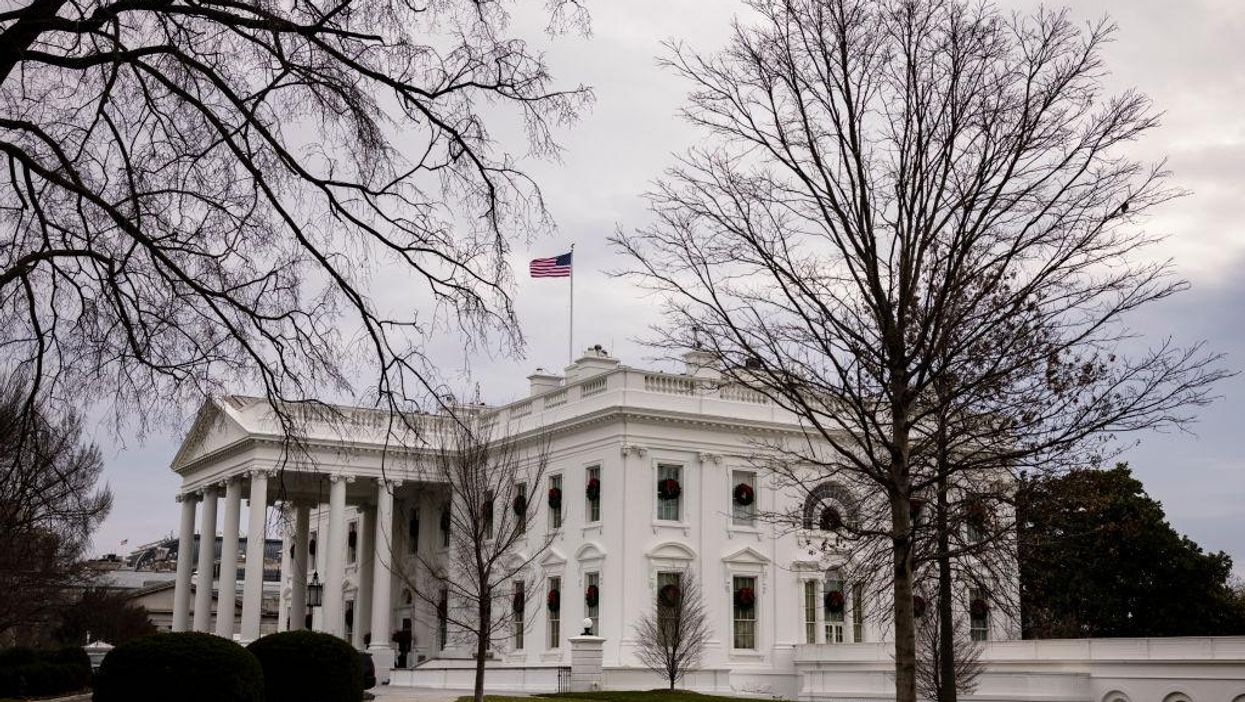
Samuel Corum/Getty Images

The plan could delay the official certification of the Electoral College vote, but almost certainly won't overturn the election
Conservative Republicans in the U.S. House of Representatives led by Rep. Mo Brooks (Ala.) met with President Donald Trump and Vice President Mike Pence at the White House Monday to discuss a long-shot, all-but-certain-to-fail effort to object to the Electoral College results before President-elect Joe Biden is inaugurated.
The plan is to have several GOP members of the U.S. House and an unknown number of Republican senators object when Congress moves to officially certify the Electoral College votes from several contested battleground states where the Trump campaign's legal team and its allies have made allegations of election irregularities. Should a senator join these representatives from the House, their objection would trigger several hours of debate in a joint session of Congress that could delay — but is highly unlikely to stop — the certification of the results on Jan. 6.
"I believe we have multiple senators and the question is not if but how many," Brooks told CNN, adding that the Republicans on board with the effort will challenge the results in at least six states and will prepare "as many as 72" five-minute speeches to deliver throughout the day.
Republican leadership in the Senate is opposed to the effort. Senate Majority Leader Mitch McConnell (R-Ky.) told his colleagues on a conference call that objecting to the Electoral College results would lead to a "terrible vote" where several Republican senators would have to choose between voting with Trump to overturn the election or against the certified election results of several states. The No. 2 Senate Republican, John Thune (S.D.), also spoke to CNN and said the effort would be futile.
"I think the thing they got to remember is, it's not going anywhere. I mean in the Senate, it would go down like a shot dog. I just don't think it makes a lot of sense to put everybody through this when you know what the ultimate outcome is going to be," he said.
Despite the opposition from Senate leadership, Brooks said a double-digit number of representatives attended the meeting at the White House. GOP leadership in the House has so far not commented publicly on the matter, and Brooks told CNN no one, including House Minority Leader Kevin McCarthy (R-Calif.), has attempted to dissuade him from challenging the election. Lawmakers reported to be involved in the plan include conservative Reps. Paul Gosar (Ariz.), Jody Hice (Ga.), Jim Jordan (Ohio), Matt Gaetz (Fla.), and Louie Gohmert (Texas).
In the Senate, incoming Senator-elect Tommy Tuberville (R) has made public comments appearing to endorse the election challenge and signaling his intention to be involved. CNN reported that Sens. Josh Hawley (R-Mo.) and Rand Paul (R-Ky.) have not ruled out participating. Only one senator needs to join House Republicans to object to a state's Electoral College results.
"In a general sense, how it looks like we're headed, it looks like we're gonna have valid objections filed to the number of states on Jan. 6," Brooks said. "And we'll probably know sometime on Jan. 7, after all the speeches and votes have taken place, what the Electoral College returns are."
Even if these Republicans successfully challenge the results of one or several states, it would take a majority vote of Congress to reject the results after up to 12 hours of debate. But no such majority exists. Most Republicans do not have the political will to overturn the election and deny Joe Biden the presidency.